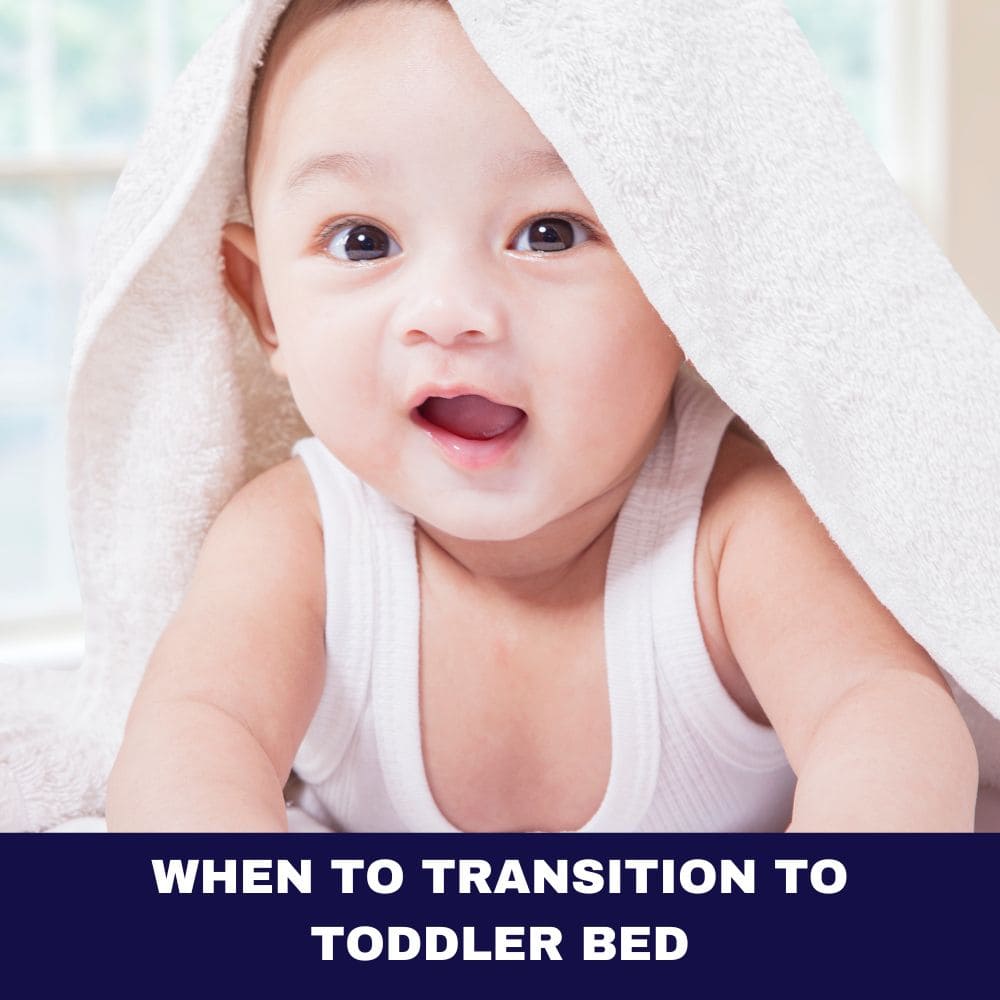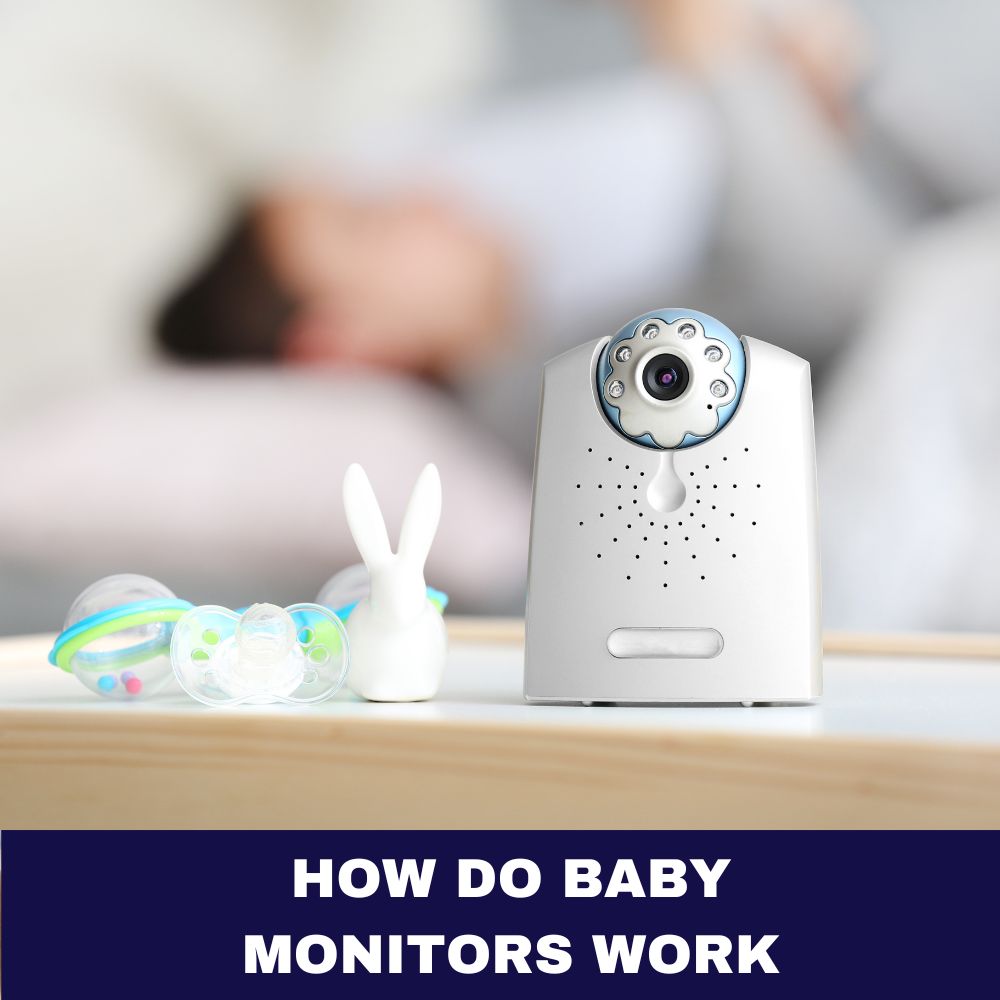As a parent of a young toddler, I know firsthand the panic of discovering my child figuring out how to climb out of their crib – a scenario all parents inevitably face. My daughter first pulled her Houdini act shortly after turning 18 months old. No amount of babyproofing prep work could eliminate my shock in that moment of dealing with those initial crib climbing attempts.
Of course, worries about safety risks and hazards immediately took over. But beyond those urgent concerns was a broader parenting dilemma – now that my toddler could potentially free herself from the confines of the crib, was this her way of signalling she was ready for a toddler bed transition? How do I know what’s the right timing and approach for handling this how to keep toddler from climbing out of crib situation?
I’ve spoken to countless parents baffled by their own crib climbers. There’s never an exact one solution fits all approach. As toddlers grow more daring and mobile, their climbing adventures often start before we feel fully prepared. However the good news is there are several effective sleep solutions you can try to safely deter and prevent climbs out of the crib until you deem the timing is right for the toddler bed switch.

When Does Crib Climbing Typically Start?
Many parents think they have a bit more time before having to worry about crib climbing attempts. But even children at a year old or younger can take parents by surprise as they first work to pull themselves upright using the crib bars. The urge and physical ability tends to fully kick in somewhere around 18 months old for most toddlers. However, it’s not unheard of for precocious climbers to emerge on the earlier end closer to a year old.
Multiple factors can motivate toddlers to start trying their luck at scaling the crib walls, including:
- Seeking independence and pushing boundaries
- Boredom or curiosity during sleep regression
- Interest in interacting with surroundings beyond the crib
- Frustration signaling they are ready for a toddler bed transition
As you’ll soon discover with a crib climbing toddler – their persistence and determination only grows with time! It’s important to act preventatively from early on.
Dangers of Crashing from the Crib
The No. 1 priority when toddler crib climbing begins is assessing and eliminating injury hazards. As tough as it may be to see your baby growing up so fast, you have to leap into safety mode given the risks at play.
Toddlers can certainly sustain major damage from falling out of their crib if it is set at its highest point. Even descents from halfway up the crib walls onto a hard floor can lead to:
- Concussions
- Broken bones
- Severe bruises/sprains
- Knocked out teeth
- Strangulation (if clothing or limbs get caught on rails)
I still shudder thinking about some of the accident stories other parents have relayed to me. It’s critical to lower your crib mattress and pad the surrounding floor area as soon as your climber demonstrates their new crib climbing skills. Only takes a split second for catastrophe to occur without proper crib safety!
Decoding Your Toddler’s Developmental Readiness
When assessing your toddler’s crib escapades, an essential question to ask is whether it signals a legitimate need for more developmental freedom. Perhaps your formerly sound sleeper has hit an early growth spurt and truly requires room to roam at night per common toddler sleep troubles.
You may opt to facilitate that independence if you gauge they are mature enough to self-soothe in a toddler bed rather than resorting to riskier crib breakouts.
Every child follows a unique timeline, but there are general sleep milestones that indicate transitional readiness:
- Verbal communication skills – Can they ask for needs, understand safety ground rules?
- Bladder control – Consistently dry overnight?
- Willingness to sleep independently – Fall asleep solo at nap/bedtimes?
- Following multi-step directions – Demonstrate comprehension of boundaries?
If most milestones are achieved, you can evaluate setup adjustments like using a toddler bed with rails. For those not meeting key markers, sticking with the crib and implementing prevention measures may be preferable.

Why Crib Tents Raise Red Flags
In seeking solutions, some parents consider using crib tents as an affordable way to deter escape artists by essentially building a cover over the crib. However, government safety agencies strongly advise against tents and canopies within cribs due to posing significant suffocation, entanglement, and injury hazards that overlook crib safety guidelines.
The AAP (American Academy of Pediatrics) specifically names crib tents as dangerous baby products to avoid. They can impede airflow even if partially lowered. Fabrics may also contain hazardous chemicals or dyes as they are often manufactured cheaply abroad. Toddlers can further hurt themselves on rigid tent poles or by catching body parts when moving around within tents.
While crib tents may seem a convenient barricade against roaming toddlers looking to do crib climbing, the safety risks overwhelmingly outweigh any perceived benefits. It’s best to stick with other preventive sleep solutions covered next.
Action Plan to Thwart Climbers
If you determine it’s still too soon for a toddler bed yet, below are 5 crib modification tactics to reinforce confinement that I’ve researched and used with success:
1. Allocate Climb-Proof Pajamas
Outfitting your tiny escape artist in a sleeper or footed pajamas specially designed with non-slip grip materials on hands/feet can hinder their scaling. Thicker fabrics also restrict mobility better compared to thin cotton clothing. Just ensure any sleepwear isn’t loose enough to cause its own tripping hazard.
2. Arrange Furniture Strategically
Consider the leverage and footholds presented by furniture around the crib. Clear everything away from immediate access. If your crib abuts a wall, place a chair or table on that side to eliminate toeing up leverage. Foam cushions, rolled towels/blankets can also pad fall zones.
3. Flip Crib Direction
If your toddler mainly climbs from one particular crib side, simply rotate the entire unit so a blank wall faces that area instead. Removing visual/physical cues thwarts habitual crib climbing attempts.
4. Lower Mattress Height
Dropping your standard crib mattress to its lowest position minimizes the distance little ones would fall. Just ensure they can’t then use upside-down crib slats as ladder rungs! Add cushioning to the floor as well since low-level falls still bring injury risk without proper crib safety.
5. Try a Sleep Training Device
For toddlers over 18 months demonstrating comprehension skills, devices like sleep-to-wake clocks using coloring indicators help establish boundaries. The clocks use simple light signals (red = nighttime/sleep, green = approved wakeup time) so you can set bedtime expectations toddlers understand. This reinforces staying put at night.
Be sure to safeguard the device so your toddler can’t hurt themselves on it in their crib as well. I suggest mounting it outside on the crib rather than having loose cords pose entanglement hazards.

Handling Night Wanderers
Suppose your preventive crib measures fail and you hear pattering footsteps at midnight – what then? It’s frustrating, but important not to overreact if you discover your toddler freely roaming the house in the wee hours. Negatively scolding after the fact likely won’t compute or change the behavior.
Instead, calmly walk them back to bed each time, using simple phrases to reinforce rules like “It’s still time for sleeping.” Offer reassurance you’re there to keep them safe at night. Verbal toddlers may respond better to sticker reward charts celebrating successful stay-put nights.
Your crib safety strategies may need reevaluation if midnight roaming becomes habitual. Perhaps it’s time for a mattress on the floor interim step before a real toddler bed. Get creative finding techniques that incentivize staying put! The main thing is not to stress or shame your curious toddler.
Final Thoughts on the Toddler Crib Climbing Learning Curve
The phase when toddlers first learn to escape their crib can set any parent’s nerves on edge! While startling, try to demonstrate patience and empathy when discovering your little one’s new skill. Their motivation stems from healthy developmental inclinations to explore.
With consistent reinforcement of safe boundaries using evidence-backed crib safety prevention methods suitable for their age, toddlers can adapt and progress at their own pace. Whether you determine it’s time to facilitate newfound freedom with a toddler bed or commit to boosting crib safety measures, maintain open communication and give your climber room to gain confidence.
If you have your own stories of foiling would-be escape artists, I’d love to hear what worked for your family in the comments below! Let’s keep the toddler wrangling wisdom flowing.
FAQ – How to Keep Toddler from Climbing Out of Crib
At what age do most toddlers start trying to climb out of their crib?
Most toddlers around 18 months old have developed the mobility, independence, and curiosity for climbing escapades. However, it’s possible for precocious toddlers to start attempting crib breakouts as young as 12 months old. There’s no set age, as kids all progress differently. Multiple factors can motivate crib climbing like boredom, seeking attention, or feeling too confined. If you notice early climbing, take preventative safety measures but don’t panic. Just your toddler testing boundaries!
Is finding my toddler climbing their crib a definite cue to transition them to a toddler bed?
Not necessarily! While it may signal transitional readiness, in many cases toddlers start climbing simply out of boredom or curiosity rather than a true need for a new sleep environment. Consider their overall development – are language and self-regulation skills at a point you’d trust independent bed mobility? Is climbing habitual or a one-off? Address the safety hazard but reassess periodically if a toddler bed (with rails) suits them yet. Cribs still provide needed containment that prevents night wandering at this age. Buy yourself time reinforcing crib boundaries.
I tried a crib tent to deter my climber after reading about it online. Why do safety groups discourage using them?
While affordable crib tents seem a convenient solution, government consumer protection agencies strongly advise against using them due to causing injury or suffocation risks that ignore standard crib safety guidelines.
The mesh canopies and rigid poles pose entanglement, pinching, and tripping hazards. Fabrics may also contain hazardous chemicals while their enclosed design can restrict vital airflow. It’s best to avoid DIY crib modifications, instead, stick to prevention methods covered in this article like strategic furniture adjustments or reinforced padding. Don’t take risks with tempting shortcuts!
No matter what I try, my toddler escapes the crib every night waking up our whole household! What should I differently in my approach?
It can be extremely frustrating dealing with a persistent climber who foils all your best-laid plans and wakes the household each night! Doubly difficult avoiding scolding them after late-night roaming when you’re severely sleep deprived. Still, it’s key not to react negatively as that approach won’t provide clarity.
Try to reinforce (during daylight hours) that it’s still time for sleeping when they escape. Perhaps use positive reinforcement reward charts for good crib sleeping. Evaluate if it’s now time for more independence with a floor mattress or toddler bed (with rails). Get creative finding techniques that incentivize staying put!
How do I childproof my toddler’s bedroom environment once they do transition to a big kid bed?
Congratulations, the big step to a toddler bed instead of baby crib! This exciting switch warrants adjusting their bedroom setup for more safety and positive reinforcement:
- Use corner cushions on furniture
- Consider attaching shelving/furniture to walls
- Ensure any cords/window blinds out of reach
- Put safety gates at doorways
- Establish understood wake-up time rules
- Offer bedtime comfort objects
- Mount rocking chairs to floor to avoid tipping
Proofing their environment helps minimize middle of the night roaming risks. Take a room tour from their vantage point pre-transition to identity any hazards. Turn their room into a secure place they enjoy spending awake/sleep time in!











